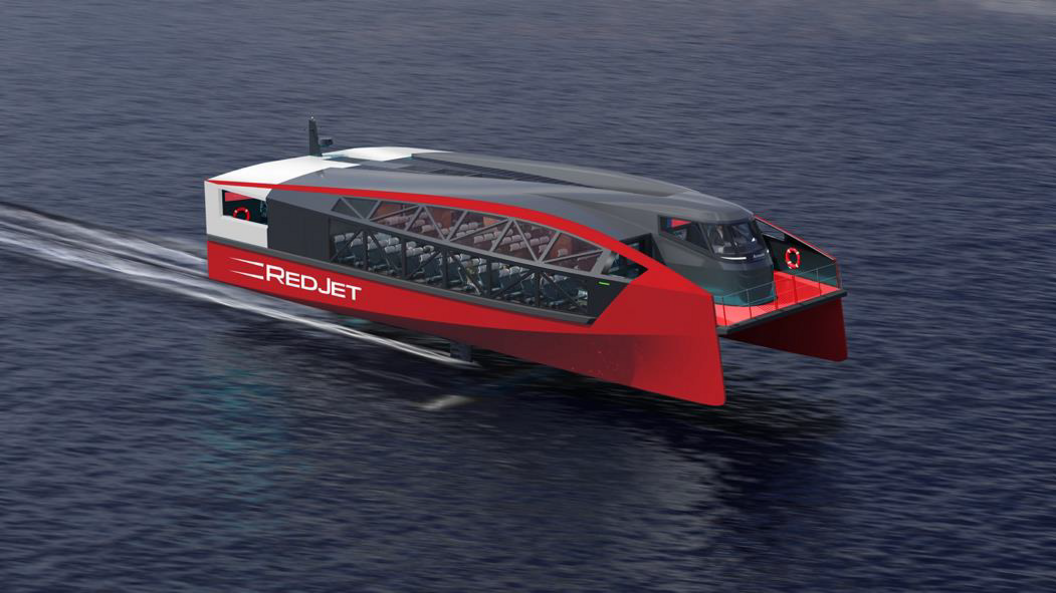Thames' first all-electric ferry built on island
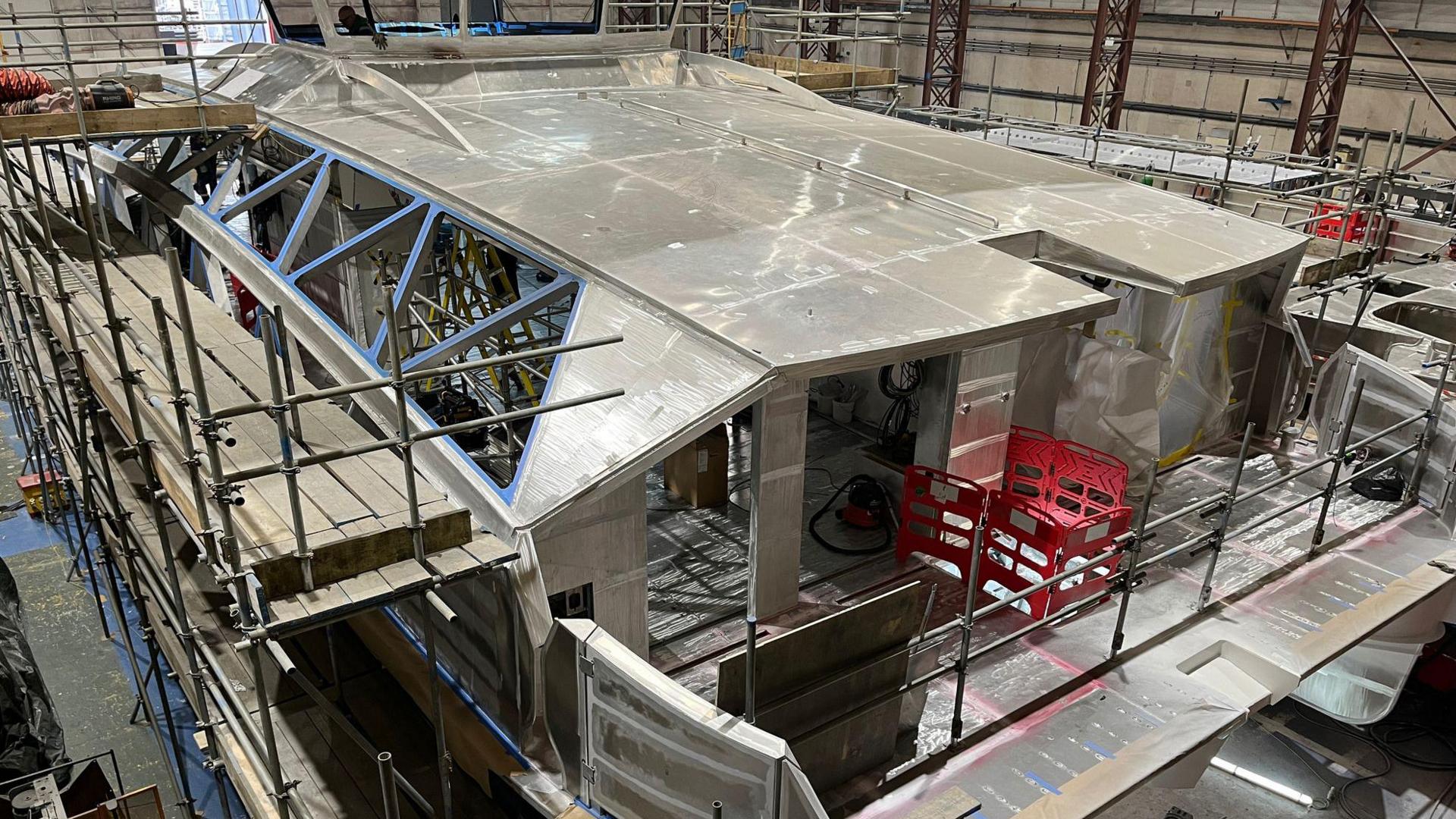
The new ferry is being built in East Cowes
- Published
A new all-electric ferry to carry people across the River Thames in London is being built at a shipyard on the Isle of Wight.
The technology is a first for both the capital and for the island.
Orbit Clipper will be ready to carry passengers in March next year, crossing the Thames between Canary Wharf and Rotherhithe every ten minutes.
It will plug in and charge overnight.
The ambition is to carry 20,000 passengers a day.
But for now, the bare metal structure looks a long way from finished: the inside is still largely empty.
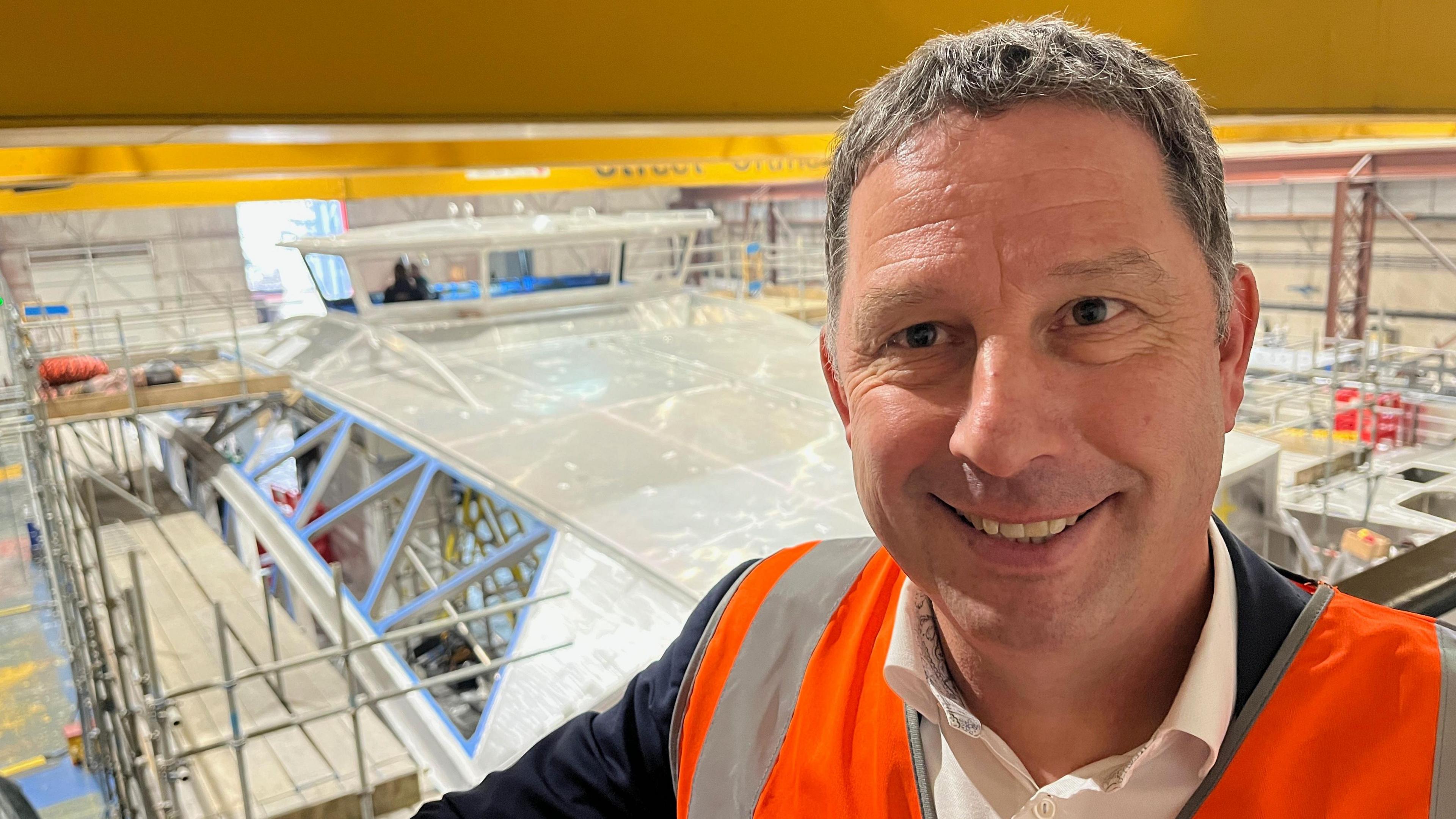
Sean Collins is chief executive of Uber Boat by Thames Clippers
"It's double-ended, which means it can dock at both ends," said Sean Collins, chief executive of Uber Boat by Thames Clippers.
"It's great that marine transport is moving in this direction. There has been a zero-emission bus in London for 15 years, so boats are behind."
It has brought work for 150 employees at Wight Shipyard in East Cowes, which has built previous Thames Clipper boats with hybrid and diesel power.
Among them are 18 apprentices, including islander Zak Linington.
"Right now I'm doing brackets on this boat," he explained.
"I had a mentor for two years, and now I am welding on my own. This is a four-year apprenticeship but I'm hoping to qualify in three."
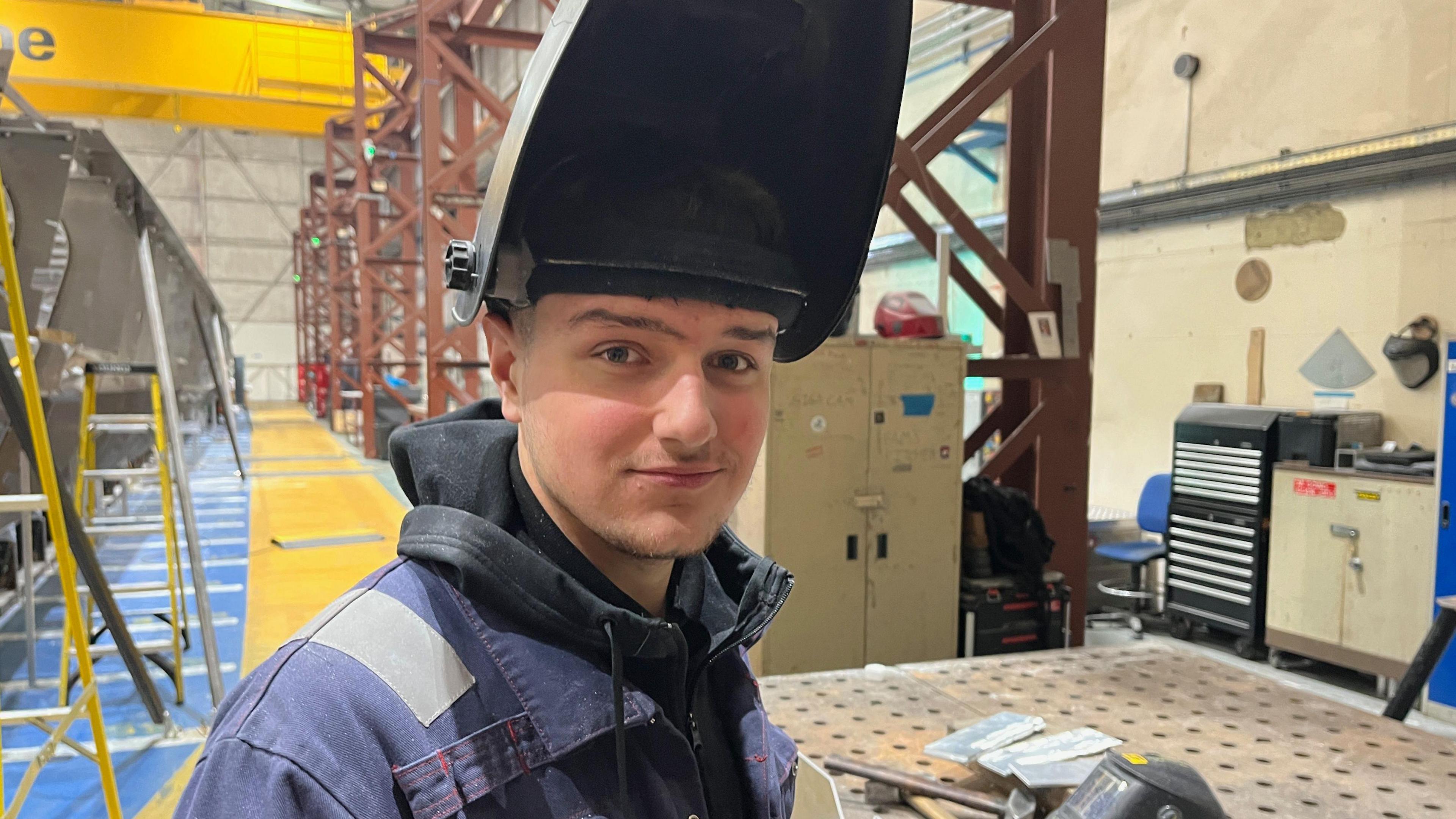
Zak Linington is one of 18 apprentices working at Wight Shipyard
The UK is behind the curve with electric ferries.
Norway has had a battery-powered car ferry for nearly ten years.
Red Funnel has announced an electric passenger ferry to connect Southampton and the Isle of Wight. It will be built in Northern Ireland.
And in February, cross-Channel operator Brittany Ferries will introduce the first of two much larger hybrid ships that can run on zero-emission battery power through Portsmouth Harbour, only firing up fossil fuel engines in the Solent.
The new ferry is now in Spain, after travelling from a shipyard in China.
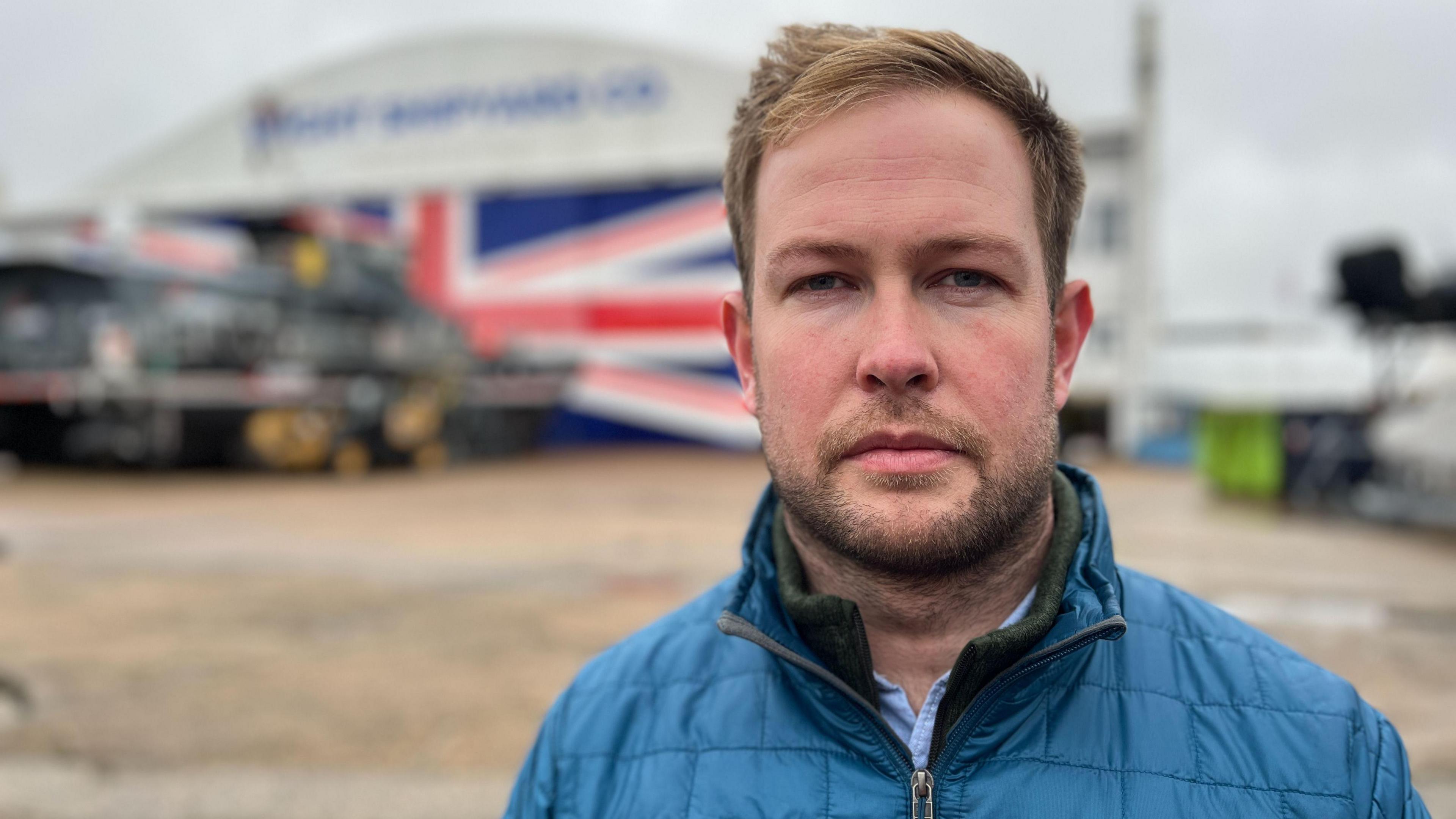
Toby Mumford is Wight Shipyard's chief executive
"This is the first fully-electric passenger ferry in the UK," said Wight Shipyard chief executive Toby Mumford.
"Lightweight aluminium is key to this, because it will need to take the extra weight of batteries compared with diesel."
"We have introduced processes that have never been done before. Each battery room has three different ways to suppress a fire."
But he said that battery power remains suitable only for some very specific ferries.
"We have exported to Mexico, Malta and Austria. We are exporting to the Gulf next; they haven't got the infrastructure to support an electric vessel."
"We try to use less fuel, whether the power is diesel, hybrid or electric. If the hull is lighter, it is more efficient.
"That is how we have ended up at the forefront of this technology."
Get in touch
Do you have a story BBC Hampshire & Isle of Wight should cover?
You can follow BBC Hampshire & Isle of Wight on Facebook, external, X (Twitter), external, or Instagram, external.
- Published12 December 2023
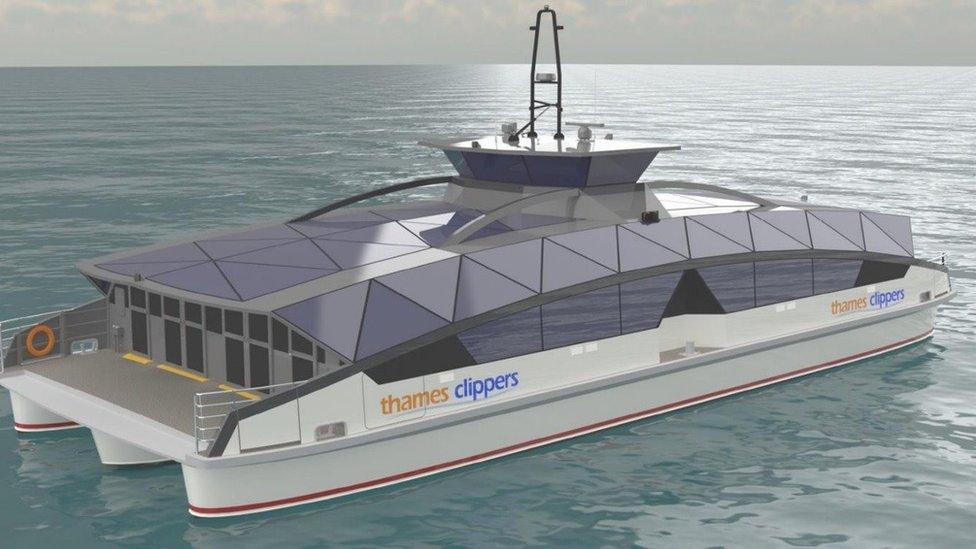
- Published7 November 2024
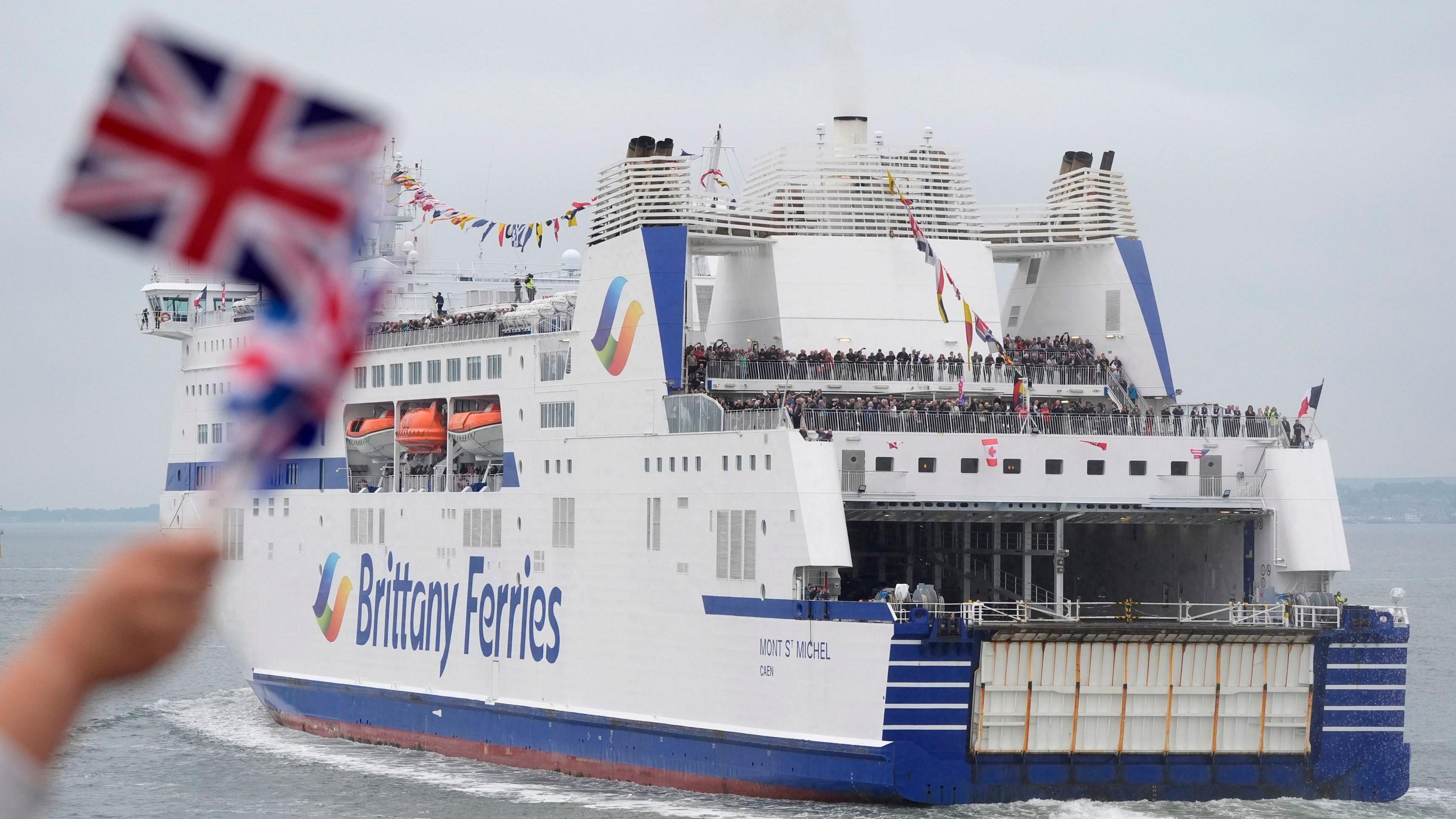
- Published2 July 2024
